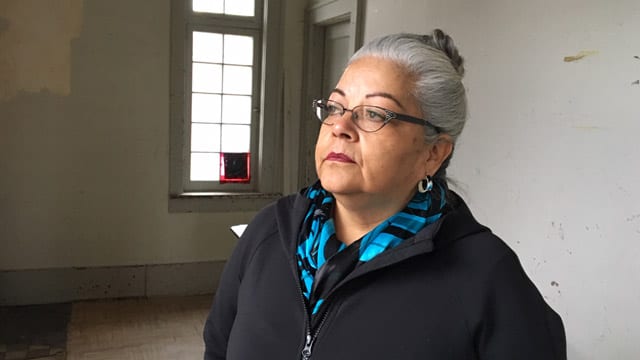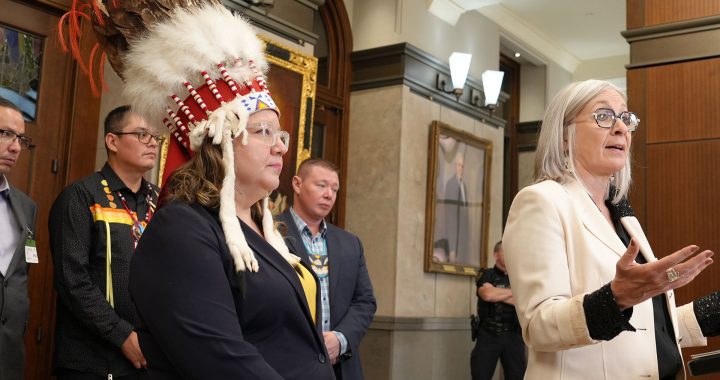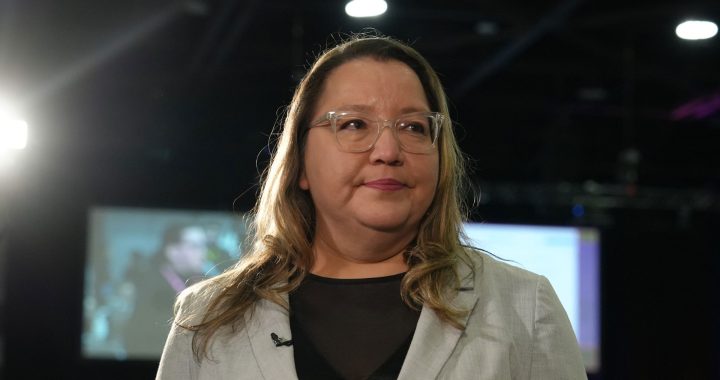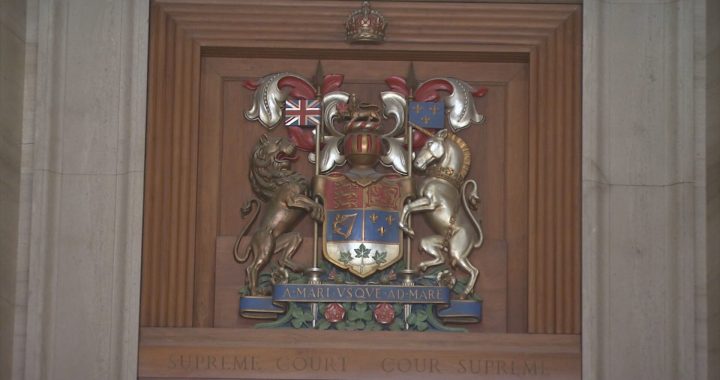
Day scholars like Jo-Anne Gottfriedson were left out of the Indian Residential Schools Settlement Agreement. Photo: APTN file
The federal government has asked the Federal Court of Appeal to overturn a recent court decision that could potentially help a specific group of forgotten residential schools survivors in their fight for justice after all these years.
Survivors known as “day scholars” won a court fight on Mar. 20 to obtain better access to a federal database of documents relating to Canada’s involvement with the residential schools. Read the decision here.
More than 130,000 historical documents, some handwritten, can only be meaningfully searched using search fields that Canada developed. The court ordered Canada to tell the day scholars what the search fields are.
Canada argued against providing the fields claiming they were designed to help its legal team in court – handing them over would “compromise its litigation privilege”.
It appealed the order Mar. 30. Read the appeal here.
There’s been no further action on the case and Canada continues to deny the day scholars a meaningful ability to find documents in the database about how the schools were run said Jo-Anne Gottfriedson, 68, who attended the former Kamloops Indian Residential School.
“We’d be able to assess and utilize those documents to create the truth,” said Gottfriedson, who was young girl at the school when a priest sexually abused her.
“[Canada] is not allowing the truth of history to be shared, not only us, as day scholars, but as Canadians and the world.”

Gottfriedson is the key plaintiff in what’s known as the “day scholars” class-action, a group of people who attended residential schools during the day and went home at night because they lived close by. Other students lived at the school. Their case is not to be confused with the separate day school class-action that was recently settled where those survivors attended residential schools that operated only during the day.
The day scholar class-action was first filed in 2012 and certified in 2015.
Like the day school survivors, the day scholars were left out of the historic apology in 2008 made by former prime minister Stephen Harper in the House of Commons.
“Trying to advance this justice for our day scholars is vital for our absolute wellness and the restoration of our language and culture,” said Gottfriedson.
The class-action also includes a band class where more than 100 bands are also suing Canada for loss of culture and language.
Gottfriedson said it’s a fight she’s up for no matter how long it drags on.
“Whatever necessary steps that we need to seek justice we are going to do that,” she said.
After all, her late sister, Violet Gottfriedson, was also a plaintiff in the case and on her death bed made Jo-Anne promise to keep fighting on.
“She had that hope that we would have justice for our people. I’m going to continue to fight for justice for our people. We deserve it,” she said.
“The churches and Canada, especially Canada, have to be accountable for what they did… putting us in an institution that raped us of our language and culture.”
She said many of the remaining survivors are getting older and passing away.
“Our day scholars are dying,” she said.
She said the novel coronavirus has the ability to make matters much worse for those still waiting for justice.












